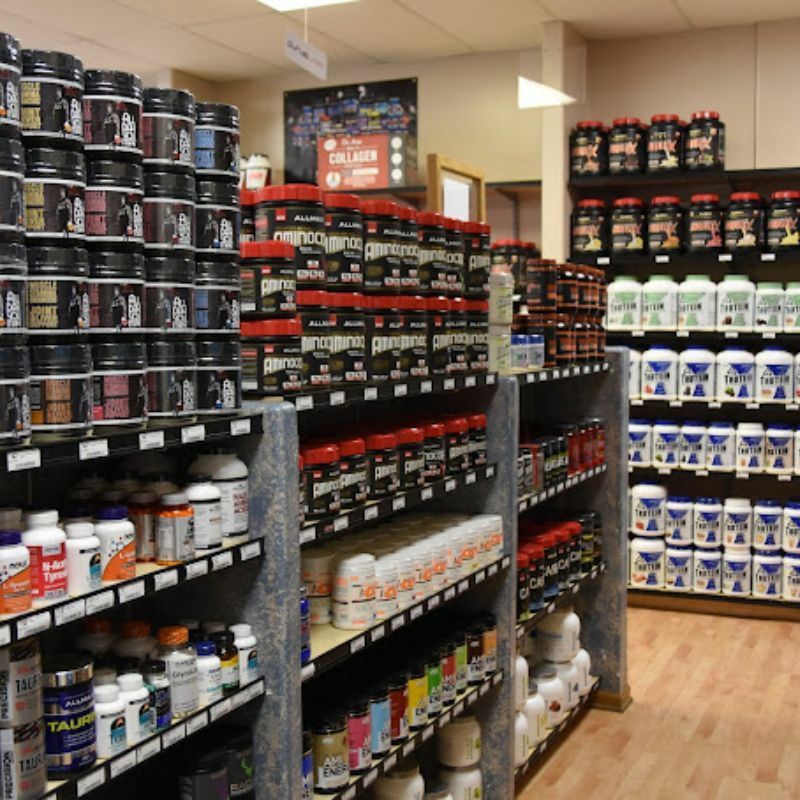Collagen & Elastin Supplements: A Comprehensive Guide
Collagen and elastin are vital proteins in our body and are best known for helping to maintain healthy skin and skin elasticity, joint health, hair and nail health, and overall vitality. In recent years Collagen Supplements have gained a lot of attention and popularity for their potential health benefits, though understanding collagen and the various types of collagen is important to make sure you get the right collagen supplement to support your health and fitness goals.
What is Collagen?
Collagen is the most abundant protein in our bodies and makes up around 30% of our bodies protein content. Collagen is also a key structural component in various tissues including skin, tendons, ligaments and bones.
Structure & Function: Collagen fibers provide strength and structure to connective tissues.
Natural Production: The body naturally produces collagen, but production does decrease with age which can lead to wrinkles, joint discomfort, and other signs of aging.
What Are The Various Types of Collagen?
There are at least 28 types of collagen, the most common types however and the types you're likely to see on the label of collagen supplements while shopping for a collagen supplement include...
Type I: Type I collagen is the most abundent type of collagen found in skin, bones, tendons and ligaments. Type I collagen is primarily used to support skin health and has anti-aging benefits.
Type II: Type II collagen is mainly found in cartilage and has benefits for joint health.
Type III: Type III collagen is often found alongside Type I and supports the structure of muscles, organs, and arteries.
Type IV: Type IV is found in the skin and helps with filtration processes.
Type V & X: Type V & X is present in smaller amounts and assists with tissue formation and bone health.
What Are The Benefits of Taking a Collagen Supplement?
Collagen supplements are best known for supporting hair, skin and nail health, although collagen offers a wide range of potential health benefits:
Skin Health: Collagen helps improve skin elasticity, hydration, and reduces the appearance of wrinkles.
Joint Support: Collagen may help reduce joint pain and stiffness and supports overall joint health and comfort.
Bone Strength: Collagen contributes to helping to maintain strong and healthy bones.
Muscle Mass: Collagen supports muscle growtha nd recoery making it beneficial for athletes, older people and active individuals.
Gut Health: Collagen assists in healing the gut lining and promotes a healthy digestive system.
Who Should Take Collagen?
Collagen supplements can be beneficial to almost anyone and in recent years collagen has gained a lot of notoriety and popularity as a beauty supplement as it supports hair, skin and nail health, however collagen can benefit any number of people including...
Aging Individuals: Natural collagen production decreases with age so supplementation as we age can help to maintain skin and joint health.
Athletes: Collagen suports joint and muscle health and can aid in recovery making collagen a great supplement option for athletes and active individuals.
Individuals With Joint Pain: Collagen may help allevaite symptoms of conditions like osteoarthritis and helps with joint comfort and joint health making it a great option for those suffering from joint pain.
People With Skin Concerns: Collagen aids in improving skin elasticity and hydration making it a great option for anyone looking to improve skin health and the appearance of their skin.
Choosing A Collagen Supplement
Collagen supplements are offered by a variety of brands ranging from Vitamin and Overall Health and Wellness brands like Now Foods, Solaray, Ancient Nutrition and others as well as in a number of forms ie powders, tablets and more recently even some liquid collagen supplements. When choosing a collagen supplement stick to reputable known brands.
When it comes to powders vs tablets, powders easily mix into smoothies and drinks and like most bulky ingredients, offer heftier dosages and more potency than capsule or tablet collagen supplements. The downside to collagen powders is they require preparation and may have a taste some find to be unpleasant.
Capsules and tablets are convenient, portable and tasteless, however they often contain lower dosages per serving and typically require taking many many tablets or capsules. If you don't mind the taste and/or already do a daily smoothie you can mix collagen into, you're typically going to get a heftier dose with a powder collagen supplement than one in tablet or capsule form. When choosing a collagen supplement also check what types of collagen it provides. If you're looking for the beauty benefits ie hair, skin and nails make sure your supplement contains Type I and Type III. If you're seeking benefits to joint comfort and joint and tendon health look for collagen supplements with Type II Collagen.
How Does Elastin Differ From Collagen?
Collagen provides structure and firmness to tissues, elastin is another essential protein that provides elasticity. Elastin allows tissues in the body to resume their shape after stretching or contracting. Elastin supplements however are less common than collagen due to the complexity of Elastins structure and function. While Elastin supplements are rare and hard to come by collagen products may help support elastin production indirectly.
Wrapping Up
Collagen and elastin are crucial for maintaining youthful skin, strong joints and overall health. Collagen supplements are available in various types and forms and can benefit individuals looking to support their body's natural aging process, improve skin health, or enhance joint and muscle function and recovery. Choosing between powder and capsule form collagen supplements comes down to personal preference and individual choice, though you're generally going to get a much larger dose of collagen in a powder collagen supplement.
Whether you're looking to reduce the appearance of wrinkles and fine lines, support joint health or support muscle recovery, collagen supplementation offers a versatile approach to enhancing your well-being. Always consult with a healthcare provider before starting any supplementation regimen to ensure its appropriate for your specific needs and if you're looking to checkout some collagen supplements click the button below.

†The content of this blog post is intended solely for reference and entertainment purposes. We do not offer medical advice or specific guidance regarding the products discussed. Our insights are based on a combination of anecdotal experiences, online studies/reviews, manufacturer details, and customer feedback. While we strive to present accurate and current information, we cannot assure its completeness or its alignment with the most recent product formulations or data. For any concerns or up-to-date information, we recommend visiting the manufacturer's website directly. The opinions and information provided here do not necessarily reflect the views of Best Price Nutrition; they represent the perspectives and information from the manufacturers and users. Furthermore, these statements have not been evaluated by the Food and Drug Administration. The products mentioned are not intended to diagnose, treat, cure, or prevent any disease or illness.
Recent Posts
-
Paraxanthine: The New Powerhouse Ingredient in Pre-Workouts and Energy Drinks
If you're someone who enjoys energy drinks or preworkouts to fuel your workouts or your day, th
-
Beef Tallow For Skincare: The Ancient Beauty Secret Making a Comeback
In the world of skincare and beauty there sems to be a new "Miracle" ingredient hitting the shelves
-
Why Does Preworkout Make You Itchy?
If you've ever taken a preworkout and found yourself scratching your palms, face or arms, you're not










